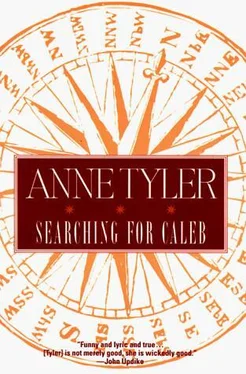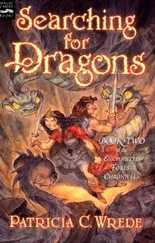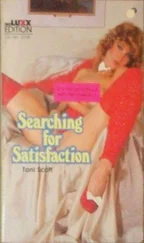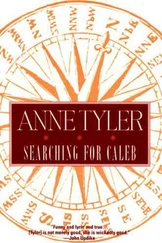Anne Tyler - Searching for Caleb
Здесь есть возможность читать онлайн «Anne Tyler - Searching for Caleb» весь текст электронной книги совершенно бесплатно (целиком полную версию без сокращений). В некоторых случаях можно слушать аудио, скачать через торрент в формате fb2 и присутствует краткое содержание. Жанр: Современная проза, на английском языке. Описание произведения, (предисловие) а так же отзывы посетителей доступны на портале библиотеки ЛибКат.
- Название:Searching for Caleb
- Автор:
- Жанр:
- Год:неизвестен
- ISBN:нет данных
- Рейтинг книги:5 / 5. Голосов: 1
-
Избранное:Добавить в избранное
- Отзывы:
-
Ваша оценка:
- 100
- 1
- 2
- 3
- 4
- 5
Searching for Caleb: краткое содержание, описание и аннотация
Предлагаем к чтению аннотацию, описание, краткое содержание или предисловие (зависит от того, что написал сам автор книги «Searching for Caleb»). Если вы не нашли необходимую информацию о книге — напишите в комментариях, мы постараемся отыскать её.
Searching for Caleb — читать онлайн бесплатно полную книгу (весь текст) целиком
Ниже представлен текст книги, разбитый по страницам. Система сохранения места последней прочитанной страницы, позволяет с удобством читать онлайн бесплатно книгу «Searching for Caleb», без необходимости каждый раз заново искать на чём Вы остановились. Поставьте закладку, и сможете в любой момент перейти на страницу, на которой закончили чтение.
Интервал:
Закладка:
In 1912 or 1913 you could run into Caleb Peck in just about any sporting house or dance hall in the city, always propped against the piano or the edge of the bandstand, puzzled and wistful, worn down from his menial daytime job, hoping to be allowed to fill in for some musician, though no one was that eager to have him. After all he did not play any brass, and most had no use for a fiddle. As for piano, he was a musical Rip Van Winkle. He had learned from a man who left New Orleans in the nineteenth century, when jazz was still spelled with two s's. So in 1912 and 1913
Caleb merely hung around the edges of places, with a thin, strained face from so much listening, from absorbing so much, from trying to understand. But in 1914 he discovered the blues, which he understood instantly without the slightest effort, and for the next twenty years you could find him in the same small area of the Vieux Carre, linked to a blind man by a length of twine and playing a fiddle above a slippery song.
While he stared now at the streaks of detergent on the green linoleum, he could hear White-Eye's loopy thin voice and the twang he made sliding a bottleneck down the strings of his guitar. He sang "Careless Love" and
"Mr. Crump." He sang what Caleb made up- "Shut House" and "Whisky Alley" and "Cane Sugar Blues." Then "The Stringtail Blues," which some people credited to Caleb too but it was plainly White-Eye's, telling how a blind man felt leaning on other people. Caleb's fiddle shimmered and lilted, the guitar notes thrummed beneath it. Caleb had turned shabby, and not quite clean. It took money to be clean. He was surprised sometimes when he caught sight of himself in a window: that lanky man in a grimy frayed suit. Often he bore welts from the bedbugs in his rooming house, where he continued to live alone, unmarried, year after year. He had a great many friends but they were mostly transients, disappearing unexpectedly and resurfacing sometimes months later and sometimes never. Only White-Eye was permanent. Yet you could not say that they were friends, at least not in any visible way. They hardly talked at all. They never discussed their personal affairs. But some people noticed how their two stringed instruments spoke together continuously like old relations recollecting and nodding and agreeing, and how when Caleb and White-Eye parted for the night they stood silent a moment, as if wishing for something more to say, before turning and shambling off in their separate directions. At night White-Eye went to a wife he never named and an unknown number of descendants. Caleb went to work as watchman in a coffee warehouse; otherwise he would have starved. (He took no more than a deceptive jingle of coins from the lard bucket.) For twenty years he existed on four hours of sleep a night. He did it for the sake of a single body of music: those peculiarly prideful songs celebrating depression, a state he had once known very well. He could no longer imagine any other kind of life. If you asked where he came from, or who his family was, he would answer readily but without real thought. He never pictured the city he named or the people. His mind veered away from them, somehow. He preferred the present. He was happy where he was.
The other street musicians dwindled to a handful, and Storyville was closed and the jazz players went off to Chicago or the excursion boats or the artificial bands hired by debutantes' mothers. But White-Eye and the Stringtail Man continued, supporting themselves more or less even through the Crash in 1929. They had become a fixture.
Though not famous, they were familiar; and the poorest people were willing to give up a coin in order to keep the world from changing any more than it already had.
In 1934, on a Monday morning very early in the year, Caleb set out searching as he always did for the first faint sound of White-Eye's guitar. (Their meetings were never prearranged. You would never suppose, at the close of a day, that they were planning to see each other tomorrow.) But he had not gone two blocks when a brown woman wearing a shawl came up and touched the scroll of his fiddle, and told him White-Eye was dead. She was his widow. On the very morning of the wake she had taken the trouble to locate Caleb and break the news and invite him to the funeral-a fact that he appreciated, though all he did was nod. Then he went home and sat for a long time on his bed. He wouldn't answer when his landlady called him. But he did attend the funeral the following afternoon and even accompanied the family to the cemetery, a remote little field outside the city. He stood at the edge of the swampy grave between two tea-colored girls who stared at him and giggled. Throughout the ceremony he kept brushing his hair off his forehead with the back of his hand. He was, by then, nearly fifty years old. It was the first time he had stopped to realize that. , Now Caleb traveled the streets alone. Since he had never been a singer he merely fiddled. (No one guessed that White-Eye's voice still rang inside his head.) The solitary strains of his music had a curious trick of blending with street sounds-with the voices of black women passing by or the hum of trolley lines or a huckster's call. First you heard nothing; then you wondered; then the music separated itself and soared away and you stood stock still with your mouth open. But when people offered him a coin, moved by what they thought they might have heard, they found no tin cup to drop it in. They tucked it into his pockets instead. At night Caleb would find all his pockets lumpy and heavy and sometimes even a crumpled paper bill stuck into his belt. He could not always remember where it had come from. He merely piled it on top of his bureau. But as the months passed the dazed feeling left him, and one noon when he was sitting in a cafe eating red beans and rice he looked up at the waitress pouring coffee and realized that life was still going on.
He stayed in New Orleans two more years, and might have stayed forever if he had not fallen in with a pair of cornetists who talked him into taking a trip to Peacham. Peacham was a small, pretty town just to the north, still suffering like anyplace else from hard times and unemployment. But the mayor had hit upon a solution: he planned to make it a resort.
(Nobody thought to ask him who would have the money to go there.) He published a three-color brochure claiming that Peacham had all the advantages of New Orleans with none of the crowds or city soot: fine food, lively bars, two full-sized nightclubs rocking with jazz, and musicians on every street corner. Then he set to work importing busloads of chefs, waitresses, and bartenders, as well as players of every known musical instrument. (In all the native population there were only three pianists-classical-and the minister's daughter, who played the harp.) References were unnecessary. So were auditions. In a creaky wooden hotel on the wrong side of town musicians were stacked on top of one another like crated chickens, venturing out each morning to look picturesque on designated corners. But there was no one to drop money in their cups. The only visitors to Peacham were the same as always-aging citizens' grown sons and daughters, come to spend a duty week in their parents' homes. One by one the new employees lost hope and left, claiming they had never thought it would work anyhow. Only Caleb stayed. He had landed there more or less by accident, reluctant to leave New Orleans, but as it turned out he happened to like Peacham just fine.
He figured he could enjoy himself there as well as anyplace else.
Now he worked days as janitor for an elementary school, and in the evenings he played his fiddle on the corner he had been assigned. He ate his meals at Sam's Cafe, where a large red kind-faced waitress gave him double helpings of everything because she thought he was too skinny. This woman's name was Bess. She lived just behind the cafe with her two-year-old boy. It was her opinion that Caleb's hotel charged too much for his room, and bit by bit she persuaded him to move in with her instead. It wasn't hard. (He was so agreeable.) Before he knew it he found himself settled in her kerosene-lit shack, in her brown metal bed, beneath her thin puckered quilt, which smelled faintly of bacon grease. If she was, perhaps, not the one he would have chosen out of all the women in the world, at least she was cheerful and easygoing. Sometimes he even considered marrying her, in order to give her son Roy a last name, but they were already so comfortable together that he never got around to it.
Читать дальшеИнтервал:
Закладка:
Похожие книги на «Searching for Caleb»
Представляем Вашему вниманию похожие книги на «Searching for Caleb» списком для выбора. Мы отобрали схожую по названию и смыслу литературу в надежде предоставить читателям больше вариантов отыскать новые, интересные, ещё непрочитанные произведения.
Обсуждение, отзывы о книге «Searching for Caleb» и просто собственные мнения читателей. Оставьте ваши комментарии, напишите, что Вы думаете о произведении, его смысле или главных героях. Укажите что конкретно понравилось, а что нет, и почему Вы так считаете.












